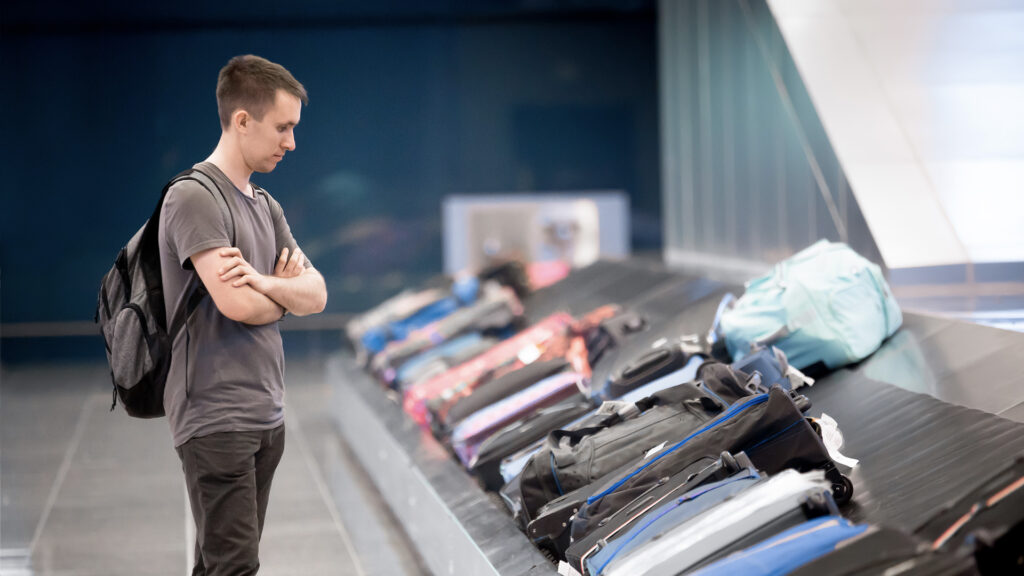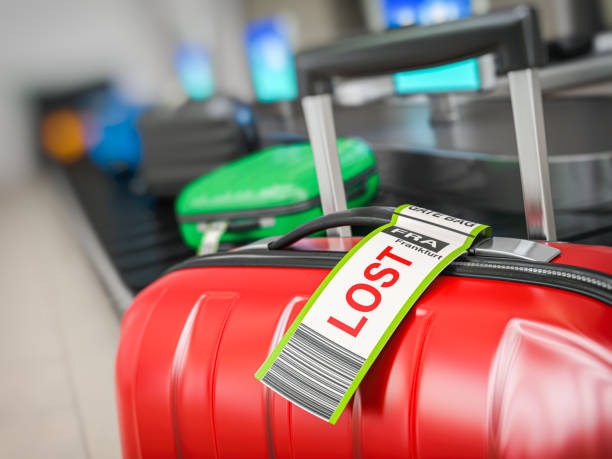A Travel Agent’s Guide to Deal with Misplaced Luggage Bags

One common concern for travellers is the possibility of lost luggage. As a travel agent, it’s crucial to provide your clients with comprehensive information and guidance to ensure a smooth and hassle-free travel experience. In this article, we’ll discuss why airlines sometimes lose bags, what to do if luggage goes missing, and how to prevent such situations.

Why Do Airlines Lose Luggage Bags?
There are several reasons why airlines may lose or misplace luggage bags during the travel process:
Transfer and Connection Issues: When passengers have connecting flights, their bags need to be transferred between aircraft. In some cases, mishaps can occur during the transfer process, leading to luggage being sent to the wrong destination or not making it onto the connecting flight.
Labelling Errors: Incorrect or damaged baggage tags can result in bags being misrouted or lost. It’s essential for travellers to double-check that their luggage tags are correctly attached and legible.
Tight Layovers: When travellers have short layovers between flights, there is a higher chance of bags not making it onto the connecting plane due to limited transfer time.
Sorting System Malfunctions: Airlines use sophisticated systems to sort and route baggage. Technical glitches or errors in the system can cause luggage to be misdirected or temporarily misplaced.
Human Error: Despite advancements in technology, human error can still occur at various stages of the baggage handling process, including check-in, transfer, and loading/unloading.
What to Do if Your Luggage bag Goes Missing
It’s essential for travel agents to inform their clients about the appropriate steps to take if their luggage goes missing:
Notify the Airline: Instruct your clients to immediately report the missing bag to the airline’s baggage service office or counter at the arrival airport. They should provide a detailed description of the bag and any unique identifying features.
Obtain a Property Irregularity Report (PIR): The airline will provide a PIR, which serves as an official document to track and trace the missing luggage. Make sure your clients understand the importance of keeping a copy of the PIR for future reference.
Provide Contact Information: Advise your clients to provide their contact information, including their hotel address and phone number, so the airline can reach them with updates on their lost bags.
Keep Receipts and Documentation: If your clients need to purchase essential items due to the loss of their luggage, advise them to keep all receipts. Some airlines may reimburse these expenses, subject to their policies.
Follow Up Regularly: Encourage your clients to follow up with the airline regularly for updates on their lost bags. Persistence can sometimes expedite the search process.
How to Prevent Lost Luggage Bags
While lost luggage incidents can happen unexpectedly, there are measures travellers can take to minimise the risk:
Use Clear Luggage Tags: Recommend that your clients use durable luggage tags with clear and legible contact information. It’s also helpful to include a backup contact number or email address inside the bag.
Remove Old Baggage Tags: Instruct your clients to remove any old baggage tags from their luggage. This helps avoid confusion and misrouting.
Pack Essential Items in Carry-On Bags: Advise your clients to pack essential items such as medications, toiletries, and a change of clothes in their carry-on bags.
Consider Travel Insurance: Suggest that your clients invest in travel insurance that covers lost luggage. This provides financial protection and assistance in the event of baggage-related issues.
Arrive Early for Connecting Flights: We recommend allowing ample time between connecting flights to minimise the risk of tight layovers and rushed baggage transfers.
By educating your clients about these preventive measures, you can help them reduce the likelihood of encountering lost luggage issues during their travels.
FAQs
Lost luggage incidents are relatively rare, but they can happen. Airlines have improved their baggage handling systems, leading to a decrease in the number of lost bags in recent years.
The time it takes to locate and return lost luggage can vary. In many cases, the airline can track and reunite passengers with their bags within a few days. However, complex situations may prolong the search process.
In the event of damaged luggage, travellers should immediately report it to the airline’s baggage service office. The airline will assess the damage and provide instructions for filing a claim.
Airlines typically have compensation policies for lost luggage, although the amount may vary. It’s important for travellers to review the airline’s terms and conditions regarding lost baggage and file a claim if eligible.
Airlines often have limitations on compensation for lost luggage, particularly for valuable or fragile items. It’s advisable for travellers to review their travel insurance policy as well, as it may provide additional coverage.
Many airlines have online tracking systems where passengers can enter their PIR reference number to check the status of their lost luggage. Travellers should inquire with the airline about the availability of such services.
As a travel agent, it’s crucial to inform your clients about the potential risks of lost luggage and guide them on the necessary steps to take if such an incident occurs. By providing this valuable information, you enhance their travel experience and ensure they are well-prepared for any unforeseen circumstances.